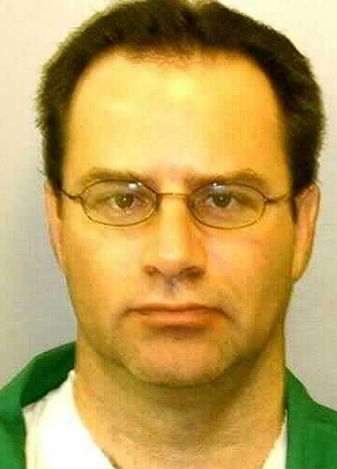
Did a South Carolina firing squad deliberately try to miss a man's heart during an execution last month to prolong his death?
That's what attorneys for Stephen Stanko, the next prisoner slated to die, contend. Stanko originally selected firing squad for his execution method, but then switched to lethal injection following the firing squad execution of Mikal Mahdi last month, the Associated Press reported.
In court papers quoted by the AP, an expert for Stanko, 57, suggested that the firing squad either aimed below the target or that the target was not placed on Mahdi's heart to "cause great pain before his death."
Mahdi's attorneys filed a complaint in May, arguing that his execution was botched, WIS-10 reported. Mahdi was executed for the 2004 killing of James Myers, an Orangeburg Public Safety officer.
Mahdi's attorneys hired Dr. Johnathan L. Arden to do an examination and Arden stated that the firing squad largely missed Mahdi's heart. Further, Arden asserted that Mahdi had some circulation and likely was conscious for 30 to 60 seconds after being shot, the station reported.
"The autopsy confirms what I saw and heard," said Mahdi's attorney, David Weiss, in a statement to WIS-10. "Mikal suffered an excruciating death. We don't know what went wrong, but nothing about his execution was humane. The implications are horrifying for anyone facing the same choice as Mikal. South Carolina's refusal to acknowledge their failures with executions cannot continue."
Although Stanko switched his choice to lethal injection, his attorneys are also challenging that method, saying previous executions left prisoners feeling like they were drowning, according to the AP. The attorneys have asked that Stanko's execution be delayed. Stanko is set to die in two days for the murder of his friend, 74-year-old Henry Turner in 2006.
The Post and Courier reported that Stanko also also murdered his girlfriend, 43-year-old Laura Ling, and sexually assaulted her daughter in a 2005 crime spree in the Myrtle Beach area.
"So (perhaps) it's not the method that's the issue — instead, these inmates just don't want to have their sentences carried out and are willing to make any argument that they can," wrote Grayson Lambert, a lawyer for South Carolina Gov. Henry McMaster, the AP reported.
Also, South Carolina has challenged any assertion that anything went wrong with Mahdi's execution.
"How bullets react once they strike the body is something that neither SCDC nor the members of the firing squad can control. That one condemned inmate dies more quickly than another does not necessarily mean that something went awry in one execution," the state said according to the AP.
Originally published on Lawyer Herald




